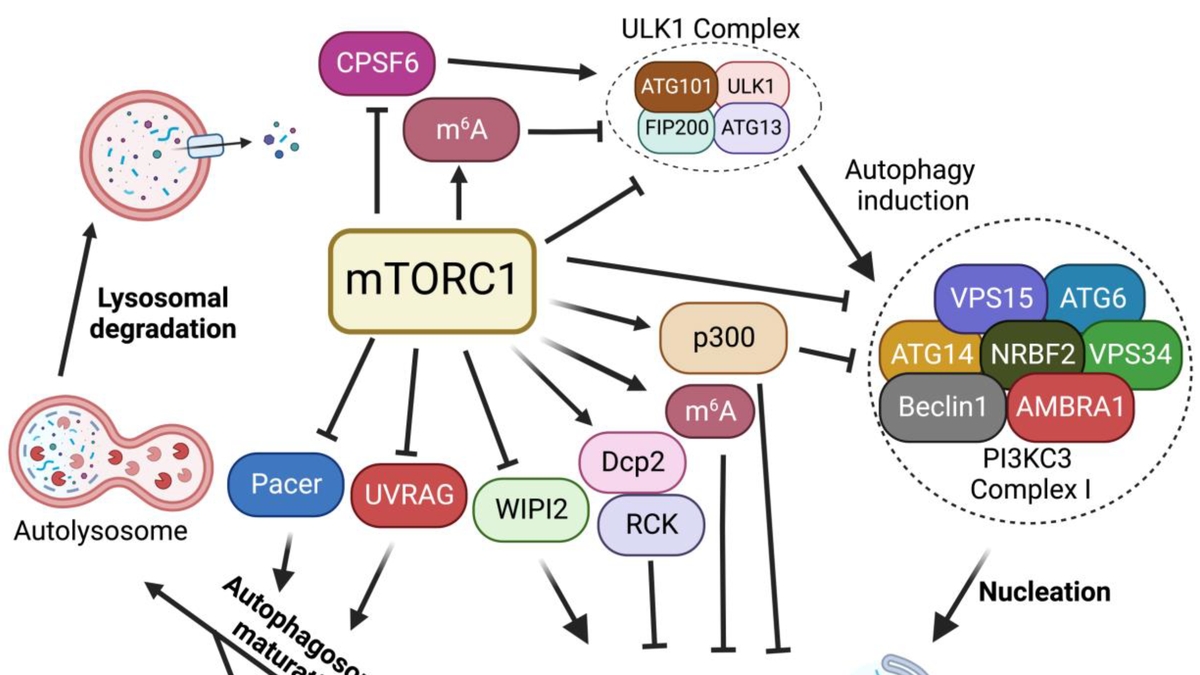
Understanding the role of diet and nutrition in health and disease is a focal point in contemporary medical research. A recent study published in Nature Metabolism has shed light on the impact of high protein intake on a critical cellular pathway. The research highlights the interplay between dietary protein, particularly the amino acid leucine, and the mammalian target of the rapamycin complex 1 (mTORC1) autophagy signaling pathway.
The Role of Leucine and mTORC1 Autophagy Signaling Pathway
The mTORC1 pathway is a critical regulator of cellular growth and metabolism. This signaling pathway is sensitive to nutrient availability, particularly amino acids such as leucine. When activated, the mTORC1 pathway can suppress autophagy, a cellular self-degradation process essential for maintaining cellular health and function.
Interestingly, the study showed that leucine is the primary activator of mTOR signaling in macrophages, immune cells involved in inflammation and atherogenesis, the formation of abnormal fatty or calcified deposits in the arteries. This finding has significant implications for understanding the link between diet and cardiovascular disease.
High Protein Intake and mTOR Activation
The study found that high protein consumption, particularly through elevated plasma leucine, may suppress mTORC1-mediated autophagy and promote atherogenesis. Notably, the study suggests a threshold effect of protein consumption on this detrimental signaling pathway. This means that only protein in excess of 25 g per meal appears to induce mTOR activation and functional effects.
Moreover, the study found that ingestion of protein in excess of 22% of dietary energy requirements drives atherosclerosis in male mice. This compelling evidence shows that excessive dietary protein has an adverse impact on cardiovascular risk.
The Role of Autophagy in Health and Disease
Autophagy plays a crucial role in maintaining cellular homeostasis. It is a self-renewal mechanism that promotes tissue regeneration by regulating inflammation, oxidative stress, and cell differentiation. In addition to its role in cardiovascular health, autophagy also plays a significant role in various pathophysiological conditions, including non-alcoholic steatohepatitis (NASH), a common liver disease.
Given the importance of autophagy in health, understanding how diet and nutrients can modulate this pathway is crucial. For instance, research suggests that natural products, such as Arabica coffee rich in chlorogenic acid, may promote autophagy and thus help ameliorate NASH.
Implications and Future Directions
The findings of this study underline the need for further clinical studies to determine the accurate threshold between dietary protein benefits and negative health impacts. Such knowledge can guide dietary recommendations and interventions to prevent or mitigate the adverse effects of high protein intake on cardiovascular health.
Furthermore, the study highlights the complex interplay between diet, metabolism, and immune function. Understanding these relationships can aid in the development of strategies to prevent and treat chronic diseases driven by dietary and metabolic imbalances.
In conclusion, while high protein diets are often recommended for weight loss and muscle gain, this research underscores the need for a balanced approach to protein intake. It is essential to consider not only the immediate benefits but also the long-term health implications of dietary choices.
